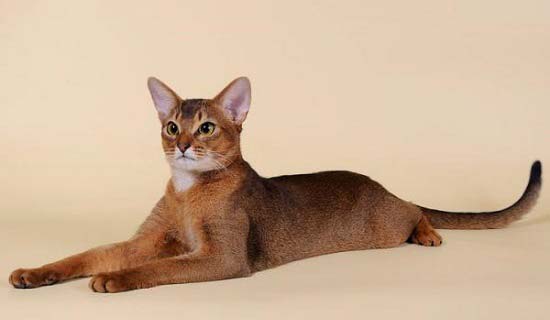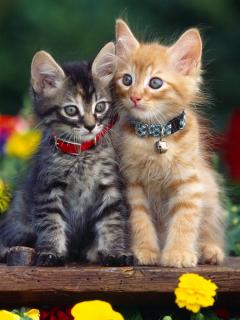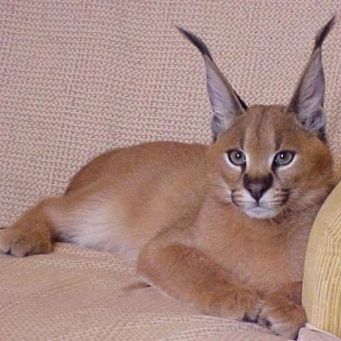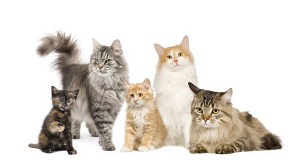Bengal cat
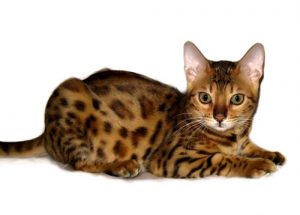 Bengal cats are a unique breed, obtained by a hybrid way. In the forests of India, China, Thailand, and the Philippines, Felis Bengalensis has long been living – animals from the cat family. There were these animals in the Far East. However, by the 60th. last century wild Bengal cats were on the verge of extinction.
Bengal cats are a unique breed, obtained by a hybrid way. In the forests of India, China, Thailand, and the Philippines, Felis Bengalensis has long been living – animals from the cat family. There were these animals in the Far East. However, by the 60th. last century wild Bengal cats were on the verge of extinction.
Poachers shot beautiful animals for their spotty skins. Exotic kittens were readily acquired by tourists, who did not know how difficult it was to keep a wild animal at home.
One of the owners of live “souvenirs” was an American Jane Mill (Sudzhen), who later created the breed. From a trip to Taiwan, Jane brought a cute kitten with a leopard coat.
The Bengal cat, who grew up at home, possessed the essence of a wild animal. She was incredulous, cautious, did not allow any familiarity towards her. However, when the period of heat came, the wild bengal woman very favorably accepted the signs of attention rendered to her by the cat Sudzhenov.
To everyone’s surprise, in 1963, an absolutely healthy female kitten was born – the fruit of love of an ordinary domestic cat and a wild cat from the forests of Thailand. Jane had an idea: what if you breed a cat that looks like an exotic forest predator? Maybe, under the influence of the beauty of small spotted kittens, people finally realize the cruelty of the barbaric extermination of animals in order to sew clothes from their skins?
Hybrid kitten inherited the exotic appearance of his mother. When the kitty grew up, she was tied with the very black domestic cat. However, experiments to breed a new breed were interrupted by the death of her husband Jane. Research resumed only 15 years later. The Bengal cat breed received official recognition only in 1991.
In the process of rock formation, numerous ALC crosses were performed. Hybrid females of the first generations of knitted with domestic cats of different breeds, among them – Burmese and Mau.
The Bengal cat, to be considered domestic, must move away from its wild ancestor by at least four generations. The descendants of the first 3 generations are intermediate links, therefore they are not allowed to the exhibitions.
At present, the standard does not allow the crossing of Bengalis with representatives of other breeds. To get new lines of leopard cats, they are knitted only within their breed.
It takes years to breed a line, since males of the first 3 hybrid generations are sterile, and females do not always have fertility. The process is delayed because not all kittens are distinguished by a beautiful leopard pattern. Over breeding animals with a beautiful exterior has to work very long. Therefore, good Bengal kittens remain the most expensive among all breeds of domestic cats.
Character and appearance
On average, a Bengal kitten carries about 15% of its wild ancestral genes. For this reason, some specific features are inherent in the Bengals, for example, the graceful plastics of forest predators, the love of water games, the exotic coloring reminiscent of the inhabitants of the wild jungle.
The weight of an adult male only rarely exceeds 7 kg, the females are much less. Cats of the Bengal breed have a powerful athletic physique, cats are distinguished by their harmony. The body is muscular, strong, elongated. A characteristic feature of the Bengali skeleton is its elongated hind legs, which, as it were, raise the back of the torso. This feature makes the Bengali cat walk like a leopard or tiger.
The head is wedge-shaped, compact. The similarity with the wild predators of the Bengalis gives a peculiar set of ears. These cats have extremely expressive golden-yellow or emerald-green eyes.
On the head there is one more specific feature: thickened boilers with a massive chin. As a result, some Bengal cats with a meow demonstrate a square-shaped tiger’s mouth.
The tail of the purebred bengal is dense and not very long. The tip must be black. Along the entire length of the tail are black rings, sometimes – dark leopard spots. The coat is short but dense, very silky to the touch.
A common stereotype states that Bengal cats have an aggressive character. This opinion is wrong. Bengals are just as tender purrs as all domestic cats. They are friendly, playful, distinguished by high ingenuity.
Bengal cats are very dedicated. Having attached to their master, they can run after him like a little dog, sleep on his bed, share a bath or watch TV.
A happy owner of a Bengal cat breed needs to remember one rule: these unusual animals really need affection and increased attention from the person.

